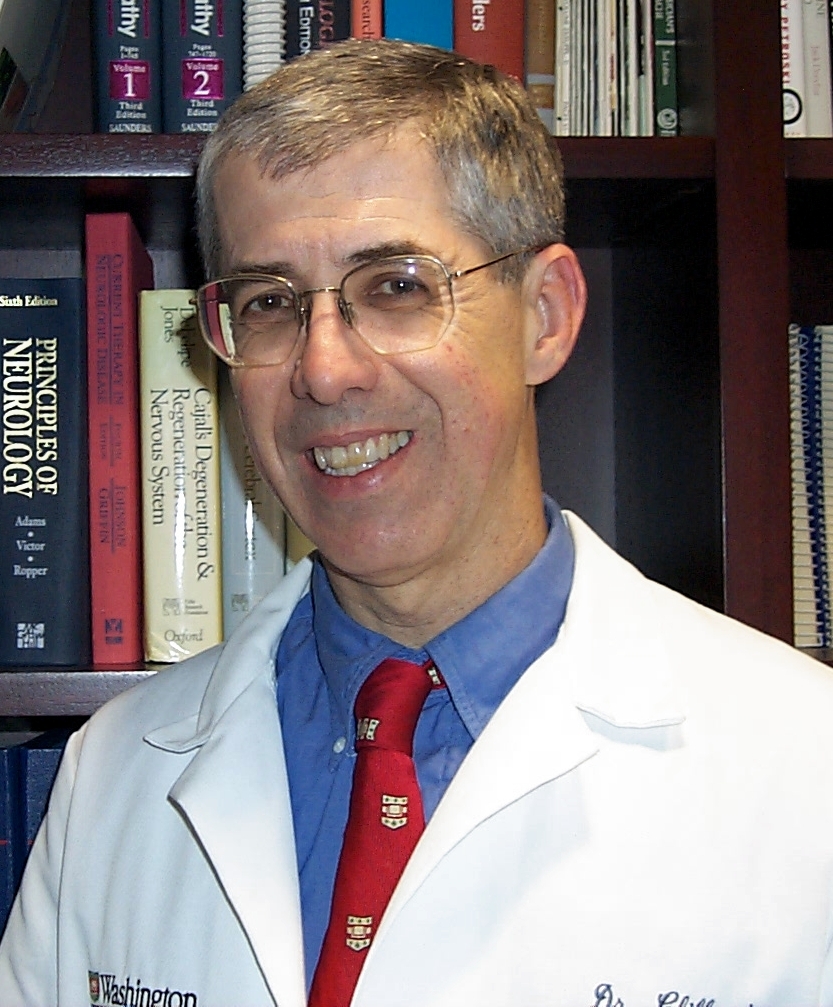Podcast: Play in new window | Download
Subscribe: Apple Podcasts | RSS
Dr. David Clifford is the Melba and Forest Seay Professor of Clinical Neuropharmacology in Neurology and Professor of Medicine at Washington University in St. Louis. In addition, he is the Principal Investigator for the Washington University AIDS Clinical Trials Unit and Principle investigator for the NeuroNext Clinical Trials Unit. David received his MD from Washington University School of Medicine and completed residency in medicine and neurology at Barnes Hospital in St. Louis. He completed a postdoctoral fellowship in Neurology before joining the faculty at Washington University. David has received many awards and honors during his career, including being named an Honorary Professor of Neurology at Addis Ababa University in Ethiopia, a Fellow of the American Academy of Neurology, a Counselor of the American Neurological Association, as well as receipt of the Neville Grant Award for Clinical Excellence from Barnes Jewish Hospital, receipt of the Award for Humanism in Medicine from Washington University in St. Louis, and he was selected to serve on the Office of AIDS Research Advisory Council. David is here with us today to tell us all about his journey through life and science.
People Behind the Science Podcast Show Notes
Life Outside of Science
David’s wife and two children are a huge source of pride and joy in his life. In addition to spending time with family, he loves music and is a pianist, organist, and singer. David is also notoriously known as an all-weather bicyclist and likes to bike or run to work.
The Scientific Side
As a translational scientist, David’s work bridges basic laboratory science and clinical practice in human beings. He works on clinical trials and primarily studies HIV, Alzheimer’s disease, and central nervous system infections.
A Dose of Motivation
“Genius is 1% inspiration and 99% perspiration.” by Thomas Edison.
What Got You Hooked on Science?
David traces his interest in wanting to be a doctor all the way back to when he was three years old putting band aids on people’s cuts. He persisted in following this dream of wanting to be a doctor despite some of his own personal limitations (including fainting at the sight of blood!).
The Low Points: Failures and Challenges
In AIDS research, dramatic advancements in the field have made this area of study less pressing and further research will not have as much of an impact as it previously did. One of the large NIH grants David was on recently lost funding, and now he is facing a transition from being a world leading in one field to being a new face in a new field field studying different diseases.
A Shining Success!
Recently, David has become very interested in a viral brain disease called PML (progressive multifocal leukoencephalopathy). This is a devastating opportunistic infection that affects people with a wide variety of conditions. In particular, it has become a concern for patients receiving an important treatment for multiple sclerosis. He has been instrumental in developing methods to calculate risk for developing PML, monitoring patients, and counseling people on their options.
Book Recommendations
Cutting for Stone by Abraham Verghese
Most Treasured Travel
David conducted research in a small rural town in Guinea-Bissau (a country in West Africa). It was very isolated with very limited electricity and breathtakingly starry night skies. The people he met there were warm and welcoming, inviting the researchers to participate in everything from funeral celebrations to ritual offerings to their deities for prosperity in research.
Quirky Traditions and Funny Memories
In David’s AIDS research group they have made it a tradition to raise money for the local HIV support organization. They started an annual a potluck Halloween dinner called Spooksgiving where people dress up, have fun, and they are able to generate funds for a worthy cause.
Advice For Us All
Don’t be afraid to take an opportunity when it is staring you in the face.
Guest Bio
In 1982, Dr. Clifford was appointed Assistant Professor of Neurology at Washington University School of Medicine, where he has served as full Professor since 1994. His present research focus is on developing neurological therapeutics including optimal treatments for neurologic complications of HIV, CNS infections, and Alzheimer’s disease. He has led programs to address HIV-associated dementia, painful peripheral neuropathies in HIV, progressive multifocal leukoencephalopathy, cryptococcal meningitis, toxoplasma encephalitis, primary CNS lymphoma, cytomegalovirus encephalitis/radiculomyelitis, and HIV myelopathy.

Leave a Reply